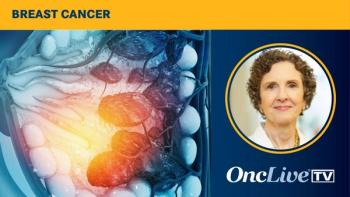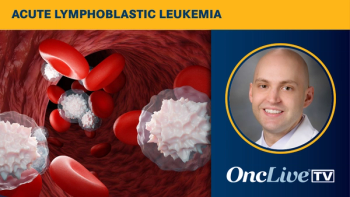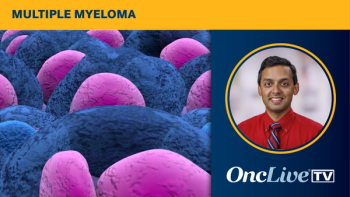
Dr Schrag on Neoadjuvant Chemotherapy and Selective Chemoradiation in Locally Advanced Rectal Cancer

Deb Schrag, MD, MPH, discusses findings from the phase 2/3 PROSPECT trial in patients with rectal cancer.
Deb Schrag, MD, MPH, chair, Department of Medicine, George J. Bosl Chair, Memorial Sloan Kettering Cancer Center, discusses findings from the phase 2/3 PROSPECT trial (NCT01515787) in patients with rectal cancer.
In PROSPECT, patients with locally advanced rectal cancer were randomly assigned to receive either pelvic chemoradiation or FOLFOX chemotherapy followed by surgery and adjuvant chemotherapy. This trial hypothesized that neoadjuvant FOLFOX plus selective pelvic chemoradiation would be noninferior to routine pelvic chemoradiation in this population. The primary end point was disease-free survival (DFS). Key secondary end points included local recurrence rate, overall survival, complete rectal resection rate, and pathologic complete (pCR).
At a median follow-up of 58 months, this trial met its noninferiority end point for DFS, Schrag says. The 5-year DFS rates were 80.8% and 78.6% in the FOLFOX and chemoradiation arms, respectively, with a hazard ratio (HR) of 0.92 (90.2% CI, 0.74-1.14). When adjusted for age and nodal status, the HR was 0.90 (90.2% CI, 0.73-1.13).
The 5-year rates of freedom from local recurrence were 98.2% and 98.4% in the FOLFOX and chemoradiation arms, respectively, with an HR of 1.18 (95% CI, 0.44-3.16). The 5-year OS rates were 89.5% and 90.2% in the FOLFOX and chemoradiation arms, respectively, with an HR of 1.04 (95% CI, 0.74-1.44).
Of the 535 patients in the FOLFOX arm and the 510 patients in the pelvic chemoradiation arm who completed surgery, the complete rectal resection rates were 99% and 97%, respectively, and the low anterior resection rate was 98% in both arms. A total of 22% of patients in the FOLFOX arm and 24% of those in the pelvic chemoradiation arm achieved a pCR. The positive radial margins were 1.2% and 1.5% in the FOLFOX and chemoradiation arms, respectively.
These noninferiority findings were upheld in both the population of patients who initiated treatment per protocol and the entire randomly assigned population, Schrag concludes.
Clinicians referring a patient to MSK can do so by visiting



































